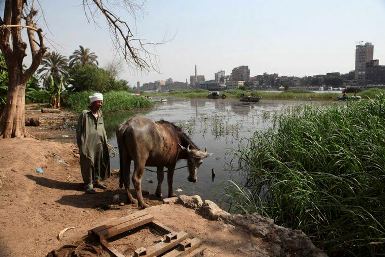Sudan, Egypt and Ethiopia agree on committee for Nile dam
September 23, 2014 (KHARTOUM) – The Water ministers of Sudan, Egypt and Ethiopia have signed an agreement to form the committee of national experts on the Ethiopian renaissance dam at the end of their fifth round of talks in Addis Ababa.

The water ministers’ meeting in Addis Ababa on Monday discussed the outcome of the meetings of national experts on future work besides selection of an international consultation firm.
The national experts committee, which is comprised of four experts from each country, will select international experts to work with to conduct two studies on a hydrological simulation model and a trans-boundary economic, social and environmental impact assessment.
The committee has been given a six-month deadline starting September to come up with a timeframe to carry out the reports.
The Egyptian water minister, Hussam Maghazi, said in press statements following the meeting that technical issues such as capacity of the dam and time needed to fill up its reservoir will be decided by the international consultants.
“We are conducting lateral contacts and making efforts [to ensure] that Egypt’s water share will not be impacted [by the dam]”, he added
He said each of the three countries will nominate 10 international consultants within ten days; pointing nominations will be discussed in the next round of talks in Cairo between 20 and 21 October in order to select the consultant by consensus.
The $6.4-billion dam is being built on the upper reaches of the Nile River, Egypt’s primary water source.
The project, which Ethiopia says is necessary for its national development plans, has raised alarm bells in Egypt, which relies on the river for almost all of its water needs.
Ethiopia insists the project will not impact Egypt’s traditional share of Nile water which has long been determined by a colonial-era water-sharing treaty that Addis Ababa has never recognized.
(ST)
